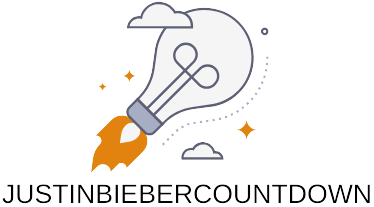Table of Contents
ToggleIn a world where life can feel like a never-ending game of Whac-A-Mole, self-help articles have emerged as the trusty mallet we all need. They promise to tackle everything from procrastination to finding inner peace, all while making readers chuckle at their own struggles. Who knew that a few words on a screen could be the secret sauce to personal growth?
Understanding Self-Help Articles
Self-help articles serve as valuable resources for individuals facing diverse challenges. These writings empower readers to tackle personal issues and foster growth.
Definition and Purpose
Self-help articles provide practical advice and strategies for personal development. Authors aim to address specific challenges like stress management or relationship improvement. By offering step-by-step guidance, these articles promote self-reflection and actionable solutions. Each piece often includes relatable anecdotes or expert insights, making the content engaging and accessible. Their purpose revolves around encouraging readers to enhance their mental and emotional well-being.
Target Audience
The target audience for self-help articles includes anyone seeking self-improvement. Readers span various demographics, encompassing students, professionals, and individuals undergoing life transitions. Many people turn to these articles in times of uncertainty or stress. Those looking for motivation to change behaviors or improve circumstances particularly benefit. Engaging content resonates with readers, fostering a sense of community through shared experiences and challenges.
Types of Self-Help Articles

Self-help articles cover various categories, each tailored to specific needs. These written resources play a crucial role in personal growth and empowerment.
Personal Development
Personal development articles focus on enhancing individual skills and self-awareness. They include practical tips for improving communication and building confidence. Common themes include goal setting, time management, and habit formation. Readers often find actionable steps that lead to significant improvements in their lives. Techniques such as visualization and mindfulness frequently appear, offering paths toward greater self-discovery and transformation.
Mental Health and Wellness
Mental health and wellness articles address emotional well-being and stress management. They provide insights into coping strategies for anxiety and depression. Readers encounter expert advice on maintaining a healthy lifestyle, encompassing exercise, nutrition, and sleep. Many articles discuss the importance of self-care routines and mindfulness practices. These resources serve as vital tools for individuals seeking to foster resilience amid life’s challenges.
Career Guidance
Career guidance articles assist individuals in navigating professional trajectories. Topics often include resume writing, interview preparation, and networking strategies. Readers learn how to manage workplace conflicts and enhance job satisfaction. Many pieces focus on personal branding and career advancement techniques. The insights provided help individuals make informed decisions about their career paths and aspirations.
Key Elements of Effective Self-Help Articles
Effective self-help articles incorporate several key elements that enhance their value to readers. First and foremost, an engaging writing style captivates the audience. Clear language, relatable anecdotes, and an inviting tone foster connection and encourage readers to reflect on their own experiences. A variety of sentence structures also keeps the content dynamic and interesting, preventing monotony.
Practical tips and strategies remain essential in such articles. Readers appreciate actionable advice that they can readily apply to their lives. Organizing these suggestions into easy-to-follow steps helps facilitate understanding. Offering examples or scenarios further clarifies complex ideas, making the content more relatable.
Research and credibility play a significant role in establishing trust with readers. Citing authoritative sources ensures the information remains reliable. Incorporating expert opinions strengthens the content, as it provides additional validation. Well-researched articles resonate with those seeking genuine solutions, thereby enhancing their effectiveness as self-help resources.
Benefits of Reading Self-Help Articles
Self-help articles provide significant advantages for personal growth and development. They empower readers, offering motivation while addressing various challenges.
Motivation and Inspiration
Inspiration often comes from relatable stories and practical advice found in self-help articles. Engaging narratives can spark a desire for personal change. Articles frequently highlight success stories, showing readers that transformation is achievable. Such examples instill hope and motivate individuals to set their personal goals. Energy and enthusiasm found in these pieces inspire action and create a positive mindset. Readers feel encouraged to embrace new habits and approaches, fostering confidence along their journey.
Skill Development
Skill development serves as a key benefit of reading self-help articles. These writings often provide detailed techniques for enhancing communication, time management, and emotional intelligence. Many articles break down complex concepts into actionable steps, making learning accessible. Readers find practical tips that help them improve their abilities in real-world scenarios. Mastering new skills lays a foundation for personal and professional growth. Opportunities for self-improvement become evident through consistent application of these learned techniques.
Improved Mental Health
Improved mental health is another crucial benefit of engaging with self-help articles. They frequently offer coping strategies to manage stress, anxiety, and depression. Such insights can transform perspectives, enabling readers to approach their challenges differently. Guidance on mindfulness and self-care practices encourages a balanced lifestyle. Readers can find comfort in knowing they are not alone in their struggles. Through connecting with insightful content, individuals can build resilience and foster a healthier state of mind.
Potential Drawbacks of Self-Help Articles
Self-help articles hold considerable value, yet they come with potential drawbacks that readers should recognize.
Misinformation Risks
Misinformation presents a significant risk within self-help articles. Many sources lack thorough fact-checking and rely on anecdotal evidence. Readers may find advice that is not scientifically validated, leading to ineffective or harmful practices. Not every article reflects expert knowledge or credentials, which makes discernment essential. Individuals must evaluate the sources critically to ensure the information is accurate and trustworthy. When relying on self-help articles, it’s important to cross-reference claims with verified studies or consult professionals for informed guidance.
Over-Reliance on Advice
Over-reliance on advice can hinder personal growth. Readers might adopt a passive mindset by depending solely on articles for solutions to complex issues. This dependency may limit their ability to think independently and hinder the development of their problem-solving skills. Self-help resources offer valuable insights, but personal reflection and active participation are crucial for real progress. Balancing the advice gained from articles with practical applications fosters a more robust understanding and engagement with one’s own journey. Taking action enriches the self-improvement process beyond mere consumption of information.
Self-help articles are invaluable resources that empower individuals to confront their challenges head-on. By offering practical advice and relatable insights, they foster personal growth and resilience. Readers can find motivation in shared experiences and success stories while developing essential skills for everyday life.
However, it’s crucial to approach these articles with a discerning eye. Evaluating the credibility of sources and balancing advice with personal reflection ensures a more effective journey toward self-improvement. Embracing the wisdom found in self-help articles can lead to transformative change, encouraging readers to take active steps toward a healthier mindset and a more fulfilling life.






